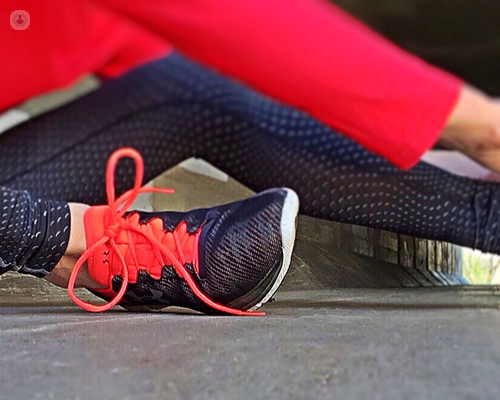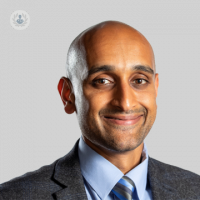New to running this new year? Get 10 top tips from an expert
Written by:There are numerous health benefits to running, such as improved cardiovascular fitness, weight management and stress reduction. However, leading orthopaedic surgeon Mr Akash Patel says it should be done in moderation and proper precautions should be made in order to minimise the risk of injury.
He tells us: “Understanding benefits versus risks is something that I consider important as a keen runner myself. It’s been key to my training, optimising performance and reducing hip and knee problems. I’d like to share this in detail with you by providing my top running tips for beginners”:

What tips do you have for preparation for running?
Proper footwear
Ensure you invest in good-quality running shoes that fit your feet and running style. Wearing comfortable trainers, and equally socks, will improve your runs and overall experience.
Warm up
It’s important to always warm up before a run. Warming up prepares your muscles and reduces the risk of injury. Key stretches are:
- Hamstrings
- Quadriceps
- Gluteal and calf muscles
Stay hydrated
Hydration before, during and after your run maintains your energy levels and prevents dehydration.
What should new runners consider when they find themselves progressing?
Have a proper form
Focussing on your running form will improve efficiency and reduce the risk of overuse injuries. You should start gently and build up by focussing on technique.
Progress gradually
Don’t push too hard, too fast. It’s crucial to have rest days for injury prevention and improvement in performance.
Recovery and rest
Give your body recovery time. Having rest days are crucial for prevention of injury and an improvement in performance.
In what ways should runners manage their routine?
Strength training
By incorporating strength training exercises, you can build a strong foundation and prevent imbalance.
Nutrition
Support your running goals by fuelling your body with a balanced diet.
Listen to your body
It’s important to pay attention to any pain or discomfort. This allows you to recognise issues early, which can prevent more severe injuries.
Mix up your running routine
Different type of runs, like speed work, long runs and cross-training, keep things varied and interesting. It also improves overall fitness.
To close, it’s important to remember that everyone’s needs are different, so it’s useful to adapt these tips to your specific goals and ability. Consulting with a coach or healthcare professional for tailored, personals advice is also a good idea.
Want to ensure you’re well prepared for running? Arrange a consultation with Mr Patel via his Top Doctors profile.


